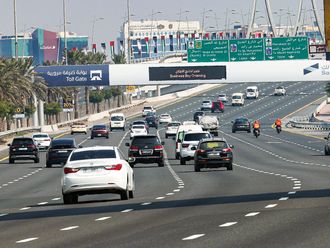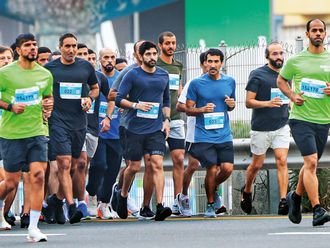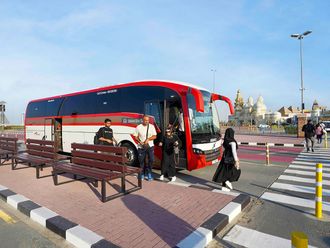
Dubai: Private schools in the UAE following the IB (International Baccalaureate) curriculum can use the “non-exam route” this academic year, the Ministry of Education tweeted on Wednesday.
The tweet said: “The Ministry of Education has approved the alternative assessment system (non-exam route), accredited by the International Baccalaureate, for all private schools that follow the International Baccalaureate Curriculum (IB) nationwide for the academic year 2020-2021.”
It follows an earlier tweet (March 23) by the ministry deciding “to provide alternative assessment methods for international examinations for students of private schools that apply the British curriculum and the [IB] curriculum for the academic year 2020/2021”.
The development closely follows the cancellation of IGCSE and A-Level exams in the UAE last month.
‘Dual route’
Earlier this year, IB had said it would offer a “dual route” for the May exam session, meaning written exams will be conducted where possible. Otherwise, a combination of internal assessment coursework and teacher-predicted grades would be followed, where written exams are not possible.
“Grade boundaries have been set for each route, building in generosity that reflects this disruption while taking into consideration how grades are likely to be assigned by other large-scale qualifications,” it says in its latest available update from March 29 on its website.
Predicted grades
“For those schools who are unable to administer exams, the IB has provided guidelines for teachers to award predicted grades. The IB also offers an exceptions process that allows schools to award higher marks by providing evidence that supports their request.”
Last year, IGCSEs, A-Levels and IB exams were cancelled in the UAE and other countries because of the COVID-19 pandemic, with students receiving grades based on a combination of teacher-predicted grades and computer models of their schools’ performance historically in the exams.
‘Looking at parity’
Simon Herbert, Head of School/CEO, GEMS International School – Al Khail, said exams or no exams, students and parents should be reassured that the IB Organisation “is looking at parity throughout the world, whether students are taking exams or pursuing the non-exam route”. IB Heads at GEMS schools have already met with students, staff and parents to discuss the road ahead.
Mixed feelings
“Just as last year, when IB examinations were cancelled, many students will have mixed feelings. The chance to ‘show what you know’ in an examination situation after two years’ work, has gone. Some might be relieved, particularly as many IB students across the world are not taking exams,” Herbert said.
As for teachers, their predicted grades and assessments across the last two years now have added “significance and impact” to the process of awarding grades, he added.
Missing the experience
Karen Nyborg, Assistant Principal Secondary – Curriculum, Progress and Assessment, GEMS World Academy – Dubai, said the school’s students had been “working diligently” alongside their teachers in preparation for the IB world examinations. “Our community was obviously disappointed by the decision to go the non-exam route, as we feel this is an important part of the IBDP [IB Diploma Programme] experience,” she added.
How will scores be assessed?
However, throughout the two years, the school’s students have shown “outstanding achievement” in internal assessments, mock exams, and summative assessments that support their “remarkable” predicted scores this year, which will be used to inform final scores received, Nyborg said.
What’s next?
She added: “This now gives us time to deliver programming that will support students in their transition into post-secondary education. We will be running academic writing workshops, budgeting and financial literacy programmes and internship opportunities, among other noteworthy programmes to ensure each student has access to ongoing personal development which will support them in the years ahead.”








